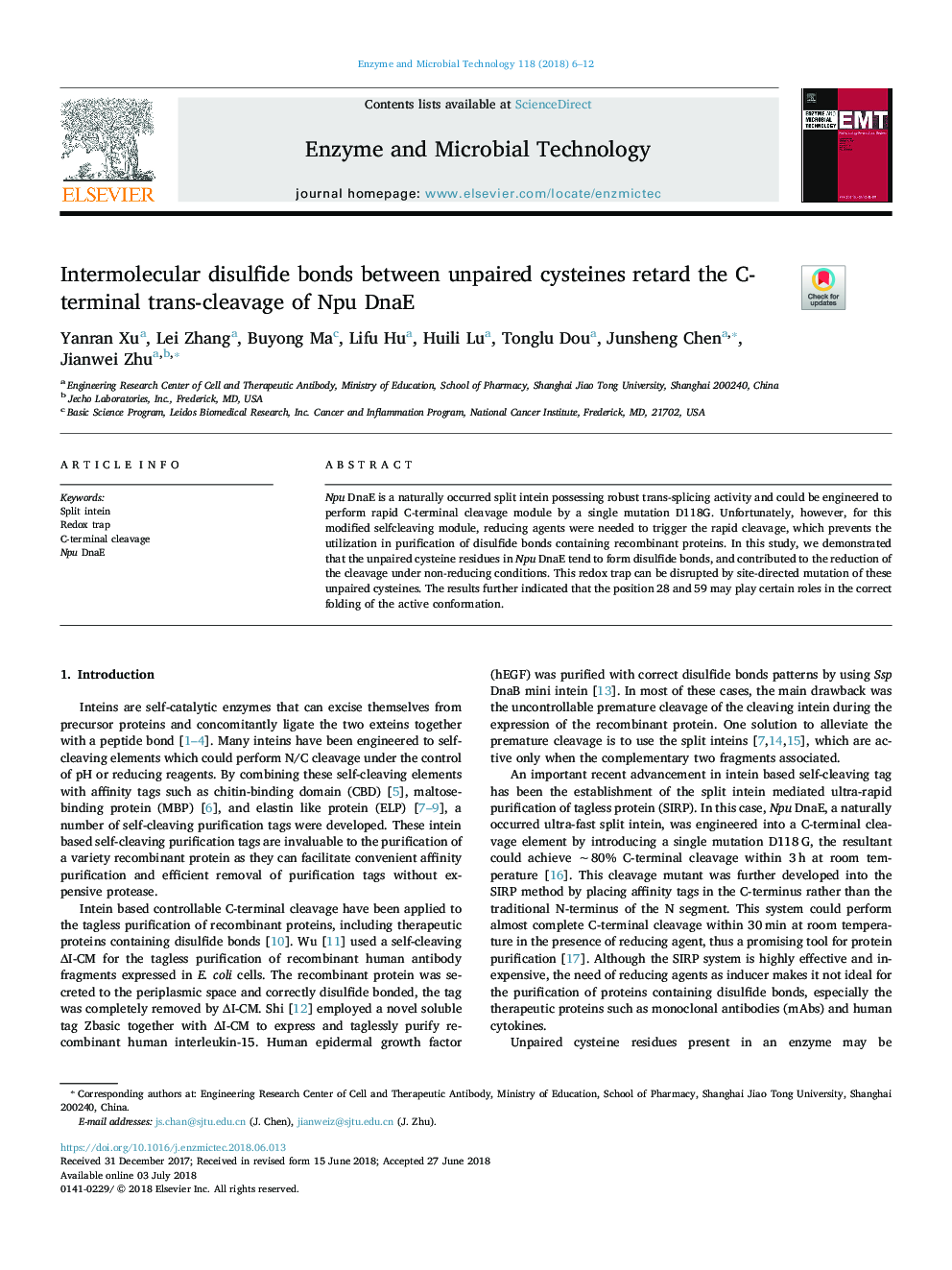| Article ID | Journal | Published Year | Pages | File Type |
|---|---|---|---|---|
| 6488033 | Enzyme and Microbial Technology | 2018 | 7 Pages |
Abstract
Npu DnaE is a naturally occurred split intein possessing robust trans-splicing activity and could be engineered to perform rapid C-terminal cleavage module by a single mutation D118G. Unfortunately, however, for this modified selfcleaving module, reducing agents were needed to trigger the rapid cleavage, which prevents the utilization in purification of disulfide bonds containing recombinant proteins. In this study, we demonstrated that the unpaired cysteine residues in Npu DnaE tend to form disulfide bonds, and contributed to the reduction of the cleavage under non-reducing conditions. This redox trap can be disrupted by site-directed mutation of these unpaired cysteines. The results further indicated that the position 28 and 59 may play certain roles in the correct folding of the active conformation.
Related Topics
Physical Sciences and Engineering
Chemical Engineering
Bioengineering
Authors
Yanran Xu, Lei Zhang, Buyong Ma, Lifu Hu, Huili Lu, Tonglu Dou, Junsheng Chen, Jianwei Zhu,
